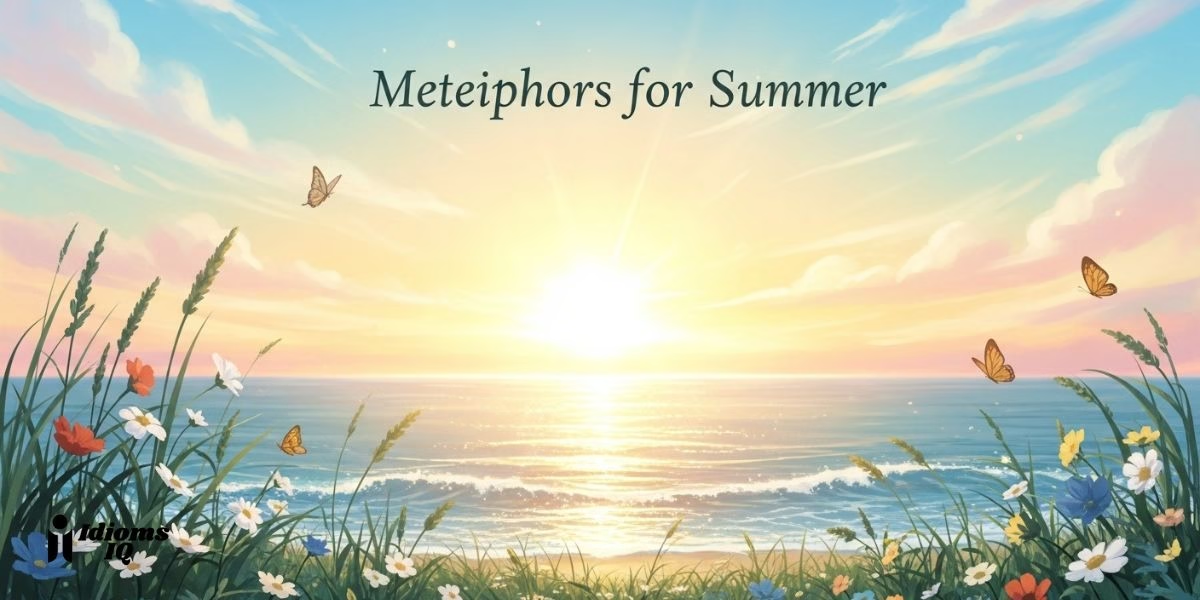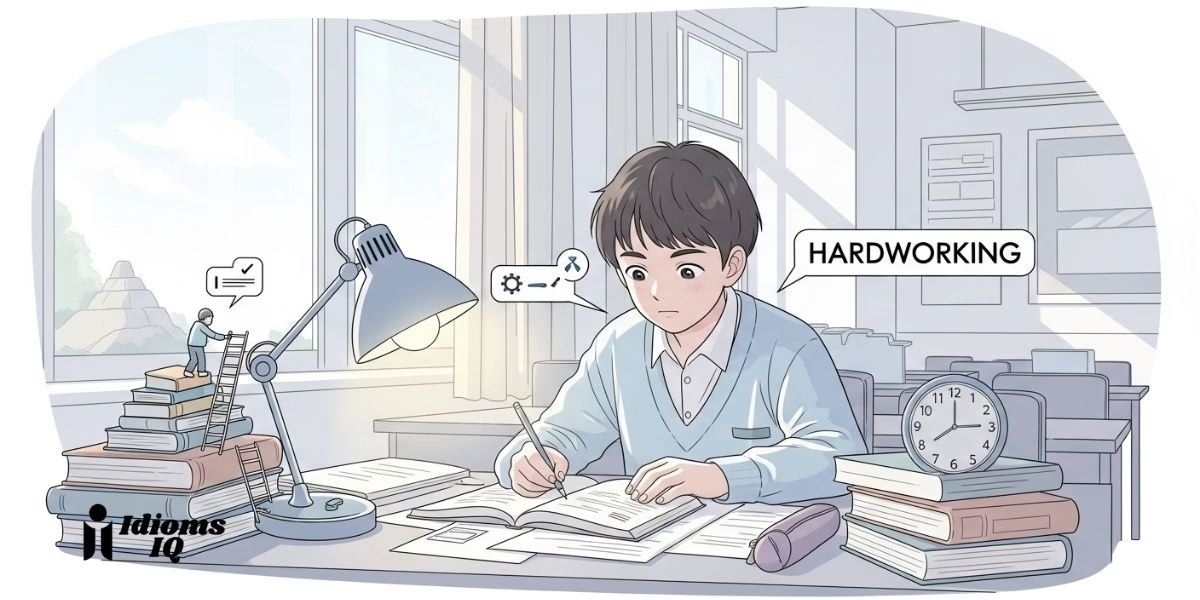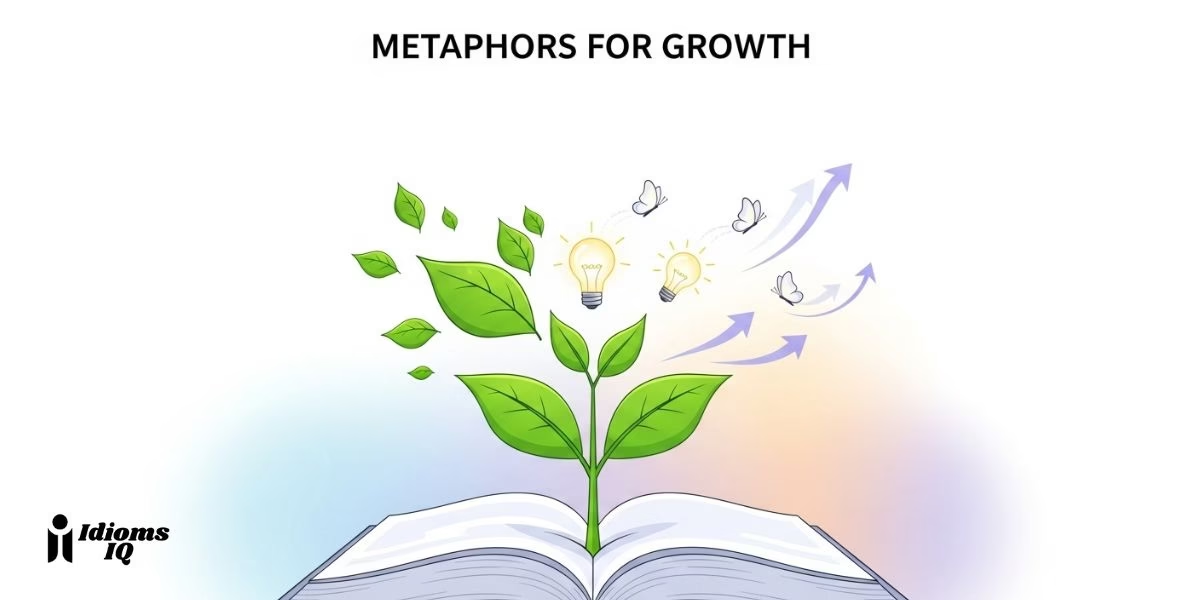
Language is a vibrant and dynamic tool, and among its most evocative figures of speech are metaphors. Unlike similes that use “like” or “as,” metaphors directly state that one thing is another, creating a powerful, often surprising, comparison. These profound linguistic devices are fundamental to how we understand and convey the nuances of life, especially when grappling with complex emotions or abstract concepts like sorrow.
By equating an intangible feeling, such as sadness, to a tangible image or idea, metaphors make the profound relatable and the abstract accessible. They can transform a simple statement into a vivid mental picture, inspiring deeper thinking and bringing clarity to intricate emotions or experiences. Embracing these 35 Metaphors for Sadness allows us to paint clearer portraits of our inner world, fostering a richer, more empathetic connection with others and a more profound appreciation for the beauty of expression.
While sadness is often depicted as a storm or shadow, music is frequently used as a metaphor to express sorrow and healing. If you’re curious about how melodies mirror emotions, explore our list of metaphors for music. It’s a lyrical journey through the emotional power of sound and silence.
Metaphors for Sadness
Here are 35 powerful metaphors for sadness that vividly describe various aspects of this complex emotion.
1. Sadness is a Heavy Cloak
- Meaning: This metaphor suggests that sadness is a pervasive, oppressive feeling that covers and weighs down a person, making them feel burdened and isolated. It describes an overwhelming, consuming sadness.
- Use in a sentence: After the news, a heavy cloak of sadness fell upon her, making every movement feel difficult.
- Other ways to say it: Oppressive sorrow, profound melancholy, deep despair.
2. Sadness is a Bottomless Pit
- Meaning: This metaphor conveys an immeasurable and seemingly endless depth of sorrow or despair, suggesting that one can fall infinitely deeper into it. It describes an unending, consuming sadness.
- Use in a sentence: His grief felt like a bottomless pit, consuming all his energy and hope.
- Other ways to say it: Endless despair, profound emptiness, vast sorrow.
3. Sadness is a Dark Cloud
- Meaning: This metaphor illustrates sadness as an omnipresent, gloomy force that obscures joy and light, casting a shadow over one’s life or mood. This is a common metaphor of sadness.
- Use in a sentence: A dark cloud hung over the entire family after the unfortunate incident.
- Other ways to say it: Gloom, persistent sorrow, pervasive despair.
4. Sadness is a Cold Hand
- Meaning: This metaphor describes sadness as an unwelcome, chilling, and often sudden touch that brings a sense of dread or emotional numbness. It describes a stark, chilling sadness.
- Use in a sentence: A cold hand gripped his heart when he realized what he had lost.
- Other ways to say it: Chilling dread, sudden despair, emotional numbness.
5. Sadness is a Winter Landscape
- Meaning: This metaphor portrays sadness as a barren, desolate, and lifeless emotional state, devoid of warmth, color, or growth. It describes a bleak, empty sadness.
- Use in a sentence: Her mind was a winter landscape, stark and empty after the breakup.
- Other ways to say it: Desolation, emotional barrenness, bleakness.
6. Sadness is an Ocean of Tears
- Meaning: This metaphor emphasizes the vast, overwhelming, and seemingly endless quantity of sorrow or grief, often leading to extensive crying. It describes immense, overflowing sadness.
- Use in a sentence: After the tragedy, she felt she was drowning in an ocean of tears.
- Other ways to say it: Profound grief, immense sorrow, boundless weeping.
7. Sadness is a Broken Mirror
- Meaning: This metaphor suggests that sadness has shattered one’s perception of self or reality, leaving fragmented pieces and a distorted view. It describes a fragmented, distorted sadness.
- Use in a sentence: His sense of identity was a broken mirror after the betrayal, reflecting only fragments of his former self.
- Other ways to say it: Shattered self, fragmented reality, fractured spirit.
8. Sadness is a Leaden Weight
- Meaning: This metaphor conveys sadness as an oppressive, heavy burden that makes one feel sluggish, weary, and weighed down. It describes a crushing, debilitating sadness.
- Use in a sentence: Every step was a struggle, as if a leaden weight was pressing down on her spirit.
- Other ways to say it: Crushing burden, oppressive weariness, profound despondency.
9. Sadness is a Fading Echo
- Meaning: This metaphor describes sadness as a diminishing but still present remnant of past pain, a lingering memory that quietly resonates. It describes a persistent, subtle sadness.
- Use in a sentence: The pain of the past was now just a fading echo, less sharp but still audible.
- Other ways to say it: Lingering sorrow, diminishing grief, residual melancholy.
10. Sadness is a Silent Scream

- Meaning: This metaphor expresses an intense, internal anguish or despair that is not outwardly voiced, suggesting a profound, unexpressed suffering. This is a powerful way to express sadness in words.
- Use in a sentence: Her quiet demeanor hid a silent scream of despair that only those closest to her could perceive.
- Other ways to say it: Unexpressed anguish, inner torment, profound suffering.
11. Sadness is a Barren Field
- Meaning: This metaphor portrays sadness as an unproductive and empty emotional state, where nothing can grow or flourish, signifying a lack of hope or joy. It describes a desolate, unproductive sadness.
- Use in a sentence: His life felt like a barren field after the loss, with no seeds of happiness to plant.
- Other ways to say it: Lifeless existence, emotional void, hopelessness.
12. Sadness is a Gnawing Worm
- Meaning: This metaphor describes sadness as a persistent, insidious, and destructive internal torment that slowly consumes one’s peace of mind. It describes a nagging, corrosive sadness.
- Use in a sentence: A gnawing worm of regret began to eat away at his conscience.
- Other ways to say it: Insidious torment, persistent worry, consuming regret.
13. Sadness is a Shackled Spirit
- Meaning: This metaphor conveys sadness as a force that restricts freedom, joy, and vitality, binding one’s inner self. It describes a confined, suppressed sadness.
- Use in a sentence: Her creativity felt like a shackled spirit, unable to break free from the chains of her sorrow.
- Other ways to say it: Suppressed vitality, confined spirit, emotional imprisonment.
14. Sadness is a Drowning Man
- Meaning: This metaphor illustrates sadness as an overwhelming force that submerges and suffocates, making one feel helpless and desperate. It describes a consuming, helpless sadness.
- Use in a sentence: He was a drowning man in a sea of despair, struggling to find a breath of hope.
- Other ways to say it: Overwhelmed, suffocated by sorrow, desperate.
15. Sadness is a Broken Compass
- Meaning: This metaphor suggests that sadness has disrupted one’s sense of direction, purpose, or moral guidance, leaving them lost and disoriented. It describes a disorienting sadness.
- Use in a sentence: After the betrayal, her moral compass was a broken compass, leaving her feeling lost and confused.
- Other ways to say it: Lost direction, moral confusion, disorientation.
16. Sadness is a Crushing Wave
- Meaning: This metaphor describes sadness as a powerful, overwhelming force that hits suddenly and completely engulfs a person. It describes a sudden, overwhelming sadness.
- Use in a sentence: A crushing wave of despair washed over her as the reality set in.
- Other ways to say it: Overwhelming sorrow, sudden grief, engulfing despair.
17. Sadness is a Festering Wound
- Meaning: This metaphor suggests that sadness is an unhealed, painful emotional injury that continues to cause suffering and may worsen if not addressed. It describes a chronic, painful sadness.
- Use in a sentence: The unresolved conflict was a festering wound in their relationship, causing constant pain.
- Other ways to say it: Unhealed pain, persistent suffering, emotional injury.
18. Sadness is a Gloomy Shadow
- Meaning: This metaphor portrays sadness as a constant, dark presence that follows one everywhere, dimming every experience. It describes a pervasive, lingering sadness.
- Use in a sentence: A gloomy shadow seemed to follow him wherever he went, dampening his spirits.
- Other ways to say it: Pervasive sadness, constant melancholy, lingering gloom.
19. Sadness is a Prison of the Mind
- Meaning: This metaphor conveys sadness as a state of mental confinement, where negative thoughts and emotions trap one’s consciousness. It describes an internal, trapping sadness.
- Use in a sentence: His depression was a prison of the mind, from which he desperately sought escape.
- Other ways to say it: Mental confinement, emotional trap, psychological bondage.
20. Sadness is a Winter Storm

- Meaning: This metaphor describes sadness as a turbulent, cold, and destructive emotional period, bringing chaos and hardship. It describes a tumultuous, harsh sadness.
- Use in a sentence: Their family went through a winter storm of grief after the sudden loss.
- Other ways to say it: Turbulent grief, harsh sorrow, destructive emotional period.
21. Sadness is a Withering Plant
- Meaning: This metaphor suggests that sadness is slowly draining the life and vitality from a person, causing them to weaken and decline. It describes a depleting, fading sadness.
- Use in a sentence: Without support, her spirit became a withering plant, losing its vibrancy and hope.
- Other ways to say it: Declining spirit, loss of vitality, weakening resolve.
22. Sadness is a Broken Melody
- Meaning: This metaphor describes sadness as a once beautiful harmony that is now fragmented, discordant, and incomplete, lacking its former joy. It describes a fragmented, lost joy.
- Use in a sentence: The joy of their past was now a broken melody, beautiful but unfinished and tinged with sorrow.
- Other ways to say it: Fragmented joy, discordant emotions, incomplete happiness.
23. Sadness is a Hollow Echo
- Meaning: This metaphor conveys a sense of profound emptiness and the lingering, but ultimately meaningless, resonance of past pain or loss. It describes an empty, desolate sadness.
- Use in a sentence: The laughter in the empty house was now just a hollow echo, a reminder of what was lost.
- Other ways to say it: Profound emptiness, lingering void, desolate memory.
24. Sadness is a Dead Weight
- Meaning: This metaphor emphasizes sadness as an inert, burdensome, and unmoving force that drags one down and prevents progress. It describes a heavy, hindering sadness.
- Use in a sentence: His apathy was a dead weight on the team, hindering any progress.
- Other ways to say it: Inert burden, hindering force, stagnant despair.
25. Sadness is a Thief in the Night
- Meaning: This metaphor portrays sadness as something that stealthily steals joy, hope, and energy, often without one realizing until it’s too late. It describes an insidious, creeping sadness.
- Use in a sentence: The depression was a thief in the night, slowly stealing his passion and zest for life.
- Other ways to say it: Insidious loss, creeping despair, subtle erosion of joy.
26. Sadness is a Cold Embrace
- Meaning: This metaphor suggests sadness is a chilling, unwelcoming hug that offers no comfort, only a sense of isolation and despair. It describes an isolating, bleak sadness.
- Use in a sentence: The silence of the empty room was a cold embrace, reminding her of her solitude.
- Other ways to say it: Chilling isolation, unwelcoming despair, stark loneliness.
27. Sadness is a Crumbled Castle
- Meaning: This metaphor illustrates sadness as the ruin of former hopes, dreams, or stability, leaving behind only debris and desolation. It describes a ruined, shattered sadness.
- Use in a sentence: His once grand ambitions were now a crumbled castle, left in ruins by his failures.
- Other ways to say it: Ruined hopes, shattered dreams, lost stability.
28. Sadness is a Perpetual Twilight
- Meaning: This metaphor conveys sadness as a state of constant dimness, neither fully dark nor fully light, signifying a lack of clear joy or complete despair. It describes a lingering, subdued sadness.
- Use in a sentence: Her life had become a perpetual twilight, never truly dark but never fully bright either.
- Other ways to say it: Constant gloom, unending dimness, lingering melancholy.
29. Sadness is a Fading Photograph
- Meaning: This metaphor describes sadness as the process where once vibrant memories or joys lose their color and clarity, becoming dull and distant. It describes a diminishing, nostalgic sadness.
- Use in a sentence: The happy moments of their past were now a fading photograph, losing their vividness with each passing year.
- Other ways to say it: Diminishing memories, blurred past, lost vibrancy.
30. Sadness is a Barbed Wire Fence

- Meaning: This metaphor suggests that sadness creates barriers, preventing connection, isolating one from others, and causing pain upon approach. It describes an isolating, painful sadness.
- Use in a sentence: His grief was a barbed wire fence around his heart, keeping everyone at a distance.
- Other ways to say it: Emotional barrier, isolating pain, self-imposed confinement.
31. Sadness is a Buried Treasure
- Meaning: This metaphor, used ironically, suggests that sadness is a hidden, often suppressed, deep-seated pain that one carries within, impacting them profoundly. It describes a concealed, profound sadness.
- Use in a sentence: His quiet demeanor hid a buried treasure of sadness from years of unspoken loss.
- Other ways to say it: Hidden pain, suppressed grief, deep-seated sorrow.
32. Sadness is a Stagnant Pond
- Meaning: This metaphor portrays sadness as a state of emotional stagnation, lacking movement, freshness, or vitality, becoming dull and lifeless. It describes a stagnant, lifeless sadness.
- Use in a sentence: Her life felt like a stagnant pond, unmoving and devoid of any new experiences or joy.
- Other ways to say it: Emotional stagnation, lifeless existence, dull monotony.
If you’re exploring how sadness is represented across literature and media, take a look at this guide to metaphor examples from LiteraryDevices.net. It breaks down how sadness is personified and symbolized using powerful figurative language.
33. Sadness is a Broken Wing
- Meaning: This metaphor conveys sadness as an injury that prevents one from soaring, achieving potential, or experiencing the freedom of joy. It describes a hindered, crippling sadness.
- Use in a sentence: After the disappointment, his ambition felt like a broken wing, unable to lift him higher.
- Other ways to say it: Crippled potential, hindered progress, lost freedom.
34. Sadness is a Winding Road
- Meaning: This metaphor describes sadness as a long, arduous, and unpredictable journey, full of twists and turns, with no clear end in sight. It describes a prolonged, challenging sadness.
- Use in a sentence: The path of grief was a winding road, full of unexpected turns and long stretches of despair.
- Other ways to say it: Arduous journey, unpredictable path, prolonged suffering.
35. Sadness is a Crushing Burden
- Meaning: This metaphor emphasizes sadness as an overwhelming and debilitating weight that presses down on one’s spirit and energy. It describes an overwhelming, debilitating sadness.
- Use in a sentence: The responsibilities of her new role became a crushing burden, leaving her feeling constantly sad and exhausted.
- Other ways to say it: Overwhelming weight, debilitating stress, heavy load.
Fill-in-the-Blank Exercise: Metaphors for Sadness
Complete the following sentences with the most appropriate metaphor from the list above.
- After the tragic news, a ______________ of sorrow settled over the entire family.
- His despair felt like a ______________, consuming all his hope and energy.
- She felt she was drowning in an ______________ after the devastating loss.
- His heart was gripped by a ______________ when he saw the empty house.
- Her mind became a ______________, barren and devoid of any joy.
- The unresolved conflict was a ______________ in their relationship, causing constant pain.
- His life felt like a ______________ after the job loss, with no new opportunities appearing.
- The betrayal left her feeling like a ______________, her sense of self shattered.
- A ______________ of regret began to eat away at his peace of mind.
- Her quiet demeanor hid a ______________ of despair that few could see.
Answer Key: Fill-in-the-Blank Exercise
- heavy cloak
- bottomless pit
- ocean of tears
- cold hand
- winter landscape
- festering wound
- barren field
- broken mirror
- gnawing worm
- silent scream
Conclusion
communication and deepen our understanding life better. By engaging with these vivid comparisons, we not only enhance our vocabulary but also cultivate a more nuanced appreciation for the subtle connections between abstract concepts and concrete images. Practicing the usage of metaphors can significantly improve both our writing skills and emotional intelligence, allowing us to convey complex ideas and emotions with greater clarity, conciseness, and impact.
Furthermore, the process of deciphering and applying metaphors sharpens our cognitive abilities, encouraging us to think beyond literal interpretations and connect with the underlying sentiments and observations they encapsulate. Embracing metaphors is an invitation to explore the richness of language and, in so doing, to understand life in a more profound and insightful way.






